On its 50th anniversary - The History of the Music Festival
- The Mary Word
- Mar 23, 2022
- 6 min read
Avery Benbow
The big day is almost here… the Music Festival. One of the cornerstones of the Loreto Normanhurst year, just around the bend on Friday the 25th of March. Each year of the Music Festival brings out a unique sense of comradery, due to time spent with your friends and fellow performers. Stress, from running around backstage in the ICC trying to find your place. And a strange sense of primal pride in one’s house when the winners for best House, Conductor, Accompanist and Spirit are announced.
However, this year holds slightly more of a historical significance than other previous years. The first music festival was held 50 years ago, in a very different way to how it is today. To commemorate this special occasion, I have done my best to compile a history of the Music Festival, which involved going into the beautifully curated archives of our school (thank you Ms Vaughan) and spending an unhealthy amount of time trying to navigate the maze of our previous newsletters, which I now take the stance on that it needs a better organisational system. I have tried the best I can to put into one article the history of the Music Festival and how it has evolved to become the spectacular event it is today; I hope I do it justice. So, without further ado…

The Beginning of the Music Festival:
In 1972, on the 14th of July, a Friday, the Grand Final Concert of the Music Festival was held in the school hall, now known as the DRC. The initiative was taken by Sister Deidre Browne, as, according to Margaret Gallagher, “seeing the success of Music Festivals at other high schools, thought that we surely could do the same, or better.” Margaret Gallagher (Form 5 - that’s what they called the Years back then) was the conductor for Barry, or Gold, as it used to be referred to as, which won the overall competition for Spirit Cup in that first year. Fascinatingly, the Spirit Cup used to be the Margaret Evans Cup. Margaret Evans was a student who won prize money for a Christian story for The Sun, and she decided to use the money to buy a trophy for a house that put the effort in and gathered the most points. As for the choir competition, in a world when there was only Mornane (green) Ward (blue), Mulhall (red), and Barry (gold) ... which house would win? Well, after making it through the preliminaries, semis, and finally performing on the final and most climactic festival night (yes, there were rounds for the music festival, how weird is that?) … the winning choir was… Ward (blue), conducted by Cathy Flitcroft. Previously inter-house competitions were just based around sport, so the involvement of the students was truly amazing, as Sister Deidre Browne commented, “It was one of the happiest musical evenings I have ever known - the competition aspect served as an incentive, but did not in any way dampen spirits.”

Margaret Gallagher (Gold) with the Margaret Evans Cup
There were originally other competitions for 14 different categories of talent in the Music Festival, such as dance, vocal, piano, other instrumental, creative, and specialised folk and fun section, and three competitors were chosen from each section for the finals. I would just like to take a moment to appreciate here all the participants at this original music festival from a much smaller school, as just over 400 Loretoites (what they used to call themselves) were involved in the house competition, and hopefully, this history will motivate you to sing a little louder on the big stage. Anyway, back to the history. It was a beautiful night for the school, Sister Deidre Browne said after the night had taken place, “It was a wonderful beginning of a tradition that I hope will grow with the years and continue to retain the genuine qualities of happy group music-making and co-operate creativity.”

A House Choir at the first Music Festival
The second Music Festival was held on Friday the 13th of April 1973 leading the students to protest for a date change. When they received a negative response, they joked in the yearbook that they “had the school fumigated for black cats, all ladders removed from the premises and distributed free garlic chains to all performers in order to wear away all witches, werewolves, warlocks and other miscellaneous evil bodies.” Thankfully, the garlic must have saved them, as the second Music Festival went off without a hitch, with lots of amazing performances mentioned. Barry again won the Margaret Evans Cup, but the other houses put up a good fight, which the yearbook also mentions as “whilst the battle between good and evil was being fought on stage, we must not omit to mention the preparations which were carried out for the duel before… indicated by the willingness of all to compete (talented and untalented alike).”

Music House Captions for the Music Festival in 1973
Changes to the Music Festival:
Aligning with Sister Deidre Browne’s wishes, the Music Festival did continue, except in 1980 and 1981, in which the Music Festival did not go forward - what happened to you? Though we are no longer ‘Loretoites,’ and though houses, not colours, sing just one song instead of a song and a hymn, and less individual and group performances, with no competitions amongst them, Music Festival is still going with, hopefully, the same level spirit as it ever has.

Sr. Deidre Browne in 1972
As the Music Festival quickly gained popularity with the growing school and interested parents, in 1995 the Music Festival was moved to the Hill Centre, because the school hall just wasn’t big enough anymore. Then, in 2002 it was relocated to Town Hall, and again in 2008 to the Homebush State Sports Centre. Finally, in 2017, to commemorate 120 years of Loreto and the ever-growing adoration of the Music Festival, it was held in the International Convention Centre Sydney or the ICC to friends and family.

The Maye Performance in 2016, the last year at the Homebush Sports Centre
A Run Down of the Recent Music Festivals:
In 2020, we had COVID-19, need I say more? In relation to the Music Festival, this involved singing to yourself in Zooms and recording yourself in the cupboard. Then all the editing took place, and we got to watch the first virtual Music Festival in the comfort of our pyjamas on our couches, munching on junk food as the member of the family who drew the short straw fiddled around with trying to connect the live stream to the TV. And though it may not have been everything we had experienced from previous Music Festivals, it was amazing how well everything came together with the program, great job to all who contributed. We then got to vote on the Best Choir for the first-ever People’s Choice Award, which went to Mornane for the song ‘Warriors,’ an amazing achievement. They were conducted by Arabella King, who said that “Music Festival is such an important event in the Loreto community and I am so glad that we were still able to celebrate everyone’s hard work this year.” It was a very memorable night for all of us, but hopefully not again, because nothing can beat good old fashioned projecting your voice into a theatre where Ariana Grande has performed instead of whispering it into your phone, wedged in a closet.

Ms Ugonotti with Mornane musical leaders, the winners of the People’s Choice Award for 2020
And our wishes (or at least mine), came true, and in 2021 we were back in the ICC, and though it sometimes involved social distancing in practice, outside in the suffocating sun with masks on (not a good combination), it was worth it to have that incredible experience again. And, like every year, there was an amazing outpouring of musical and dance-based talent and a fight for victory in the house cup, from which Mornane again emerged victorious with a mind-blowing performance of ‘High Hopes,’ led by Madeleine Campbell, who also won the best conductor award, with majestic choreography. The best accompanist was won by Monica Teng from Barry, and the Spirit Cup was won by Mulhall. It also featured an assortment of Lady Gaga, ‘Home’ by the Boarder Choir, and a range of other masterpieces that surely will go down in history, like the Boarder Choir in 1984’s ‘Bohemian Rhapsody’, and 1990’s performance of ‘I Still Haven’t Found What I’m Looking For’. Another bonus to a great night, we got the Music Festival right in time, bringing us together as a school before we were dispersed, once again, by COVID into quarantine for a whole term.

Kuring-Gai practising for the 2021 Music Festival
And now as the house songs are coming together, the ensembles are practising like maniacs, and we are drawing closer and closer to the big night, I hope that I have helped to give you an understanding and appreciation for the magic of the Music Festival through the ages, and how it continues to bring us together. We can only hope that this Loreto tradition will continue for as long as possible into the future, so that maybe someday, in another 50 years’ time, this article could be dug up from a dusty drawer or an outdated website and help some other students learn or write about the history of the Music Festival. And that as Sister Deidre Browne wished, 50 years ago, it will continue to inspire our community and bring us together around the values that make Loreto a special place.

Mornane winning the Best Choir in 2021
Some other photos from the 2021 Music Festival, let’s get excited for 2022:
References
Loreto Normanhurst 1972, Loreto Normanhurst School Magazine, Loreto Normanhurst, Sydney.
Loreto Normanhurst 1973, Loreto Normanhurst School Magazine, Loreto Normanhurst, Sydney.
Loreto Normanhurst 2020, Music Festival 2020 - People's Choice Award, Loreto Normanhurst Newsletter, viewed 9 March 2022.

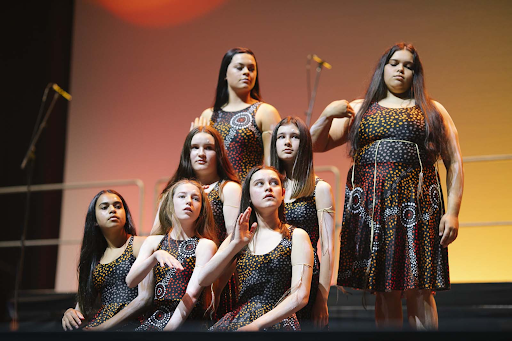

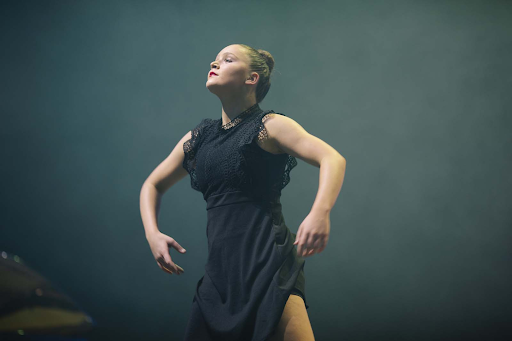

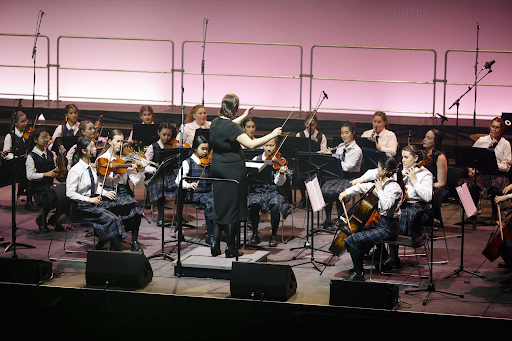



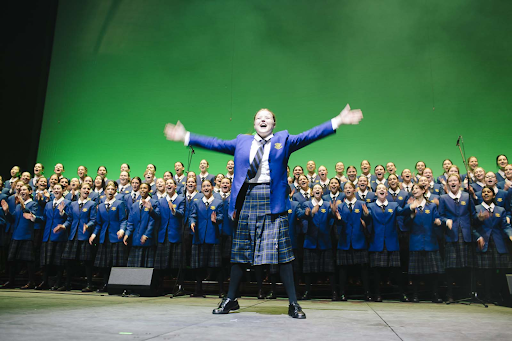

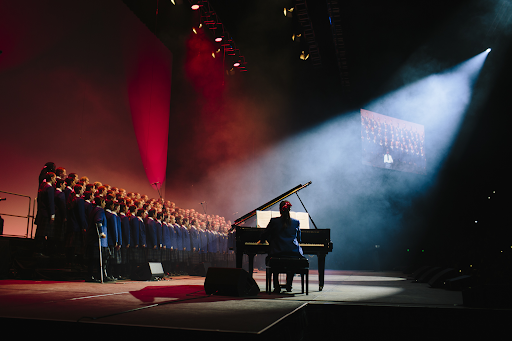

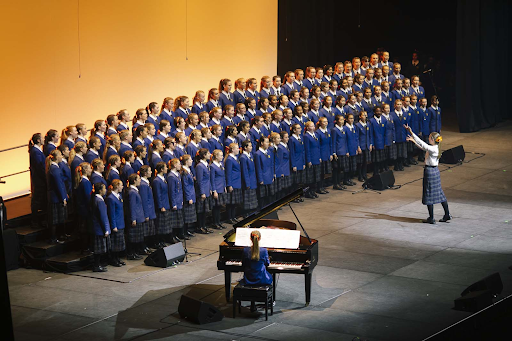

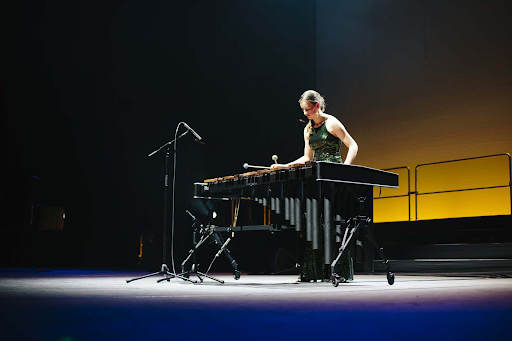

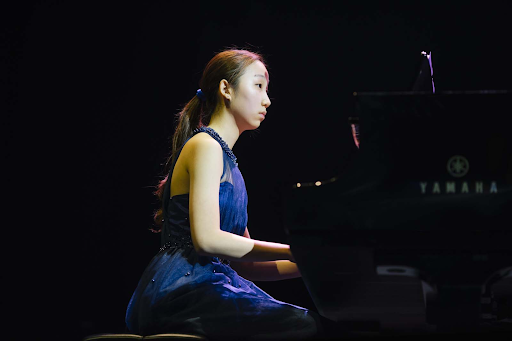

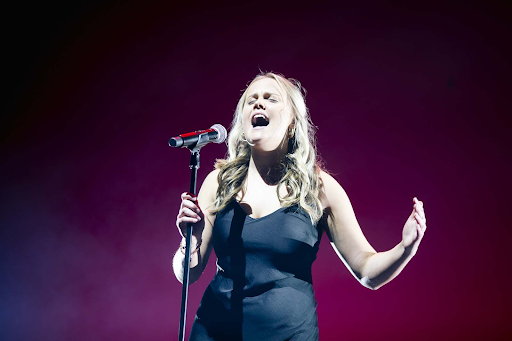

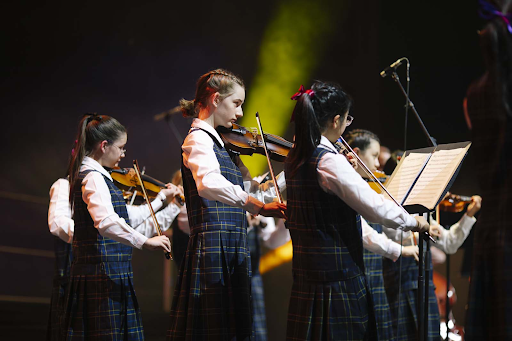





Yeah!! Love this article 🙌